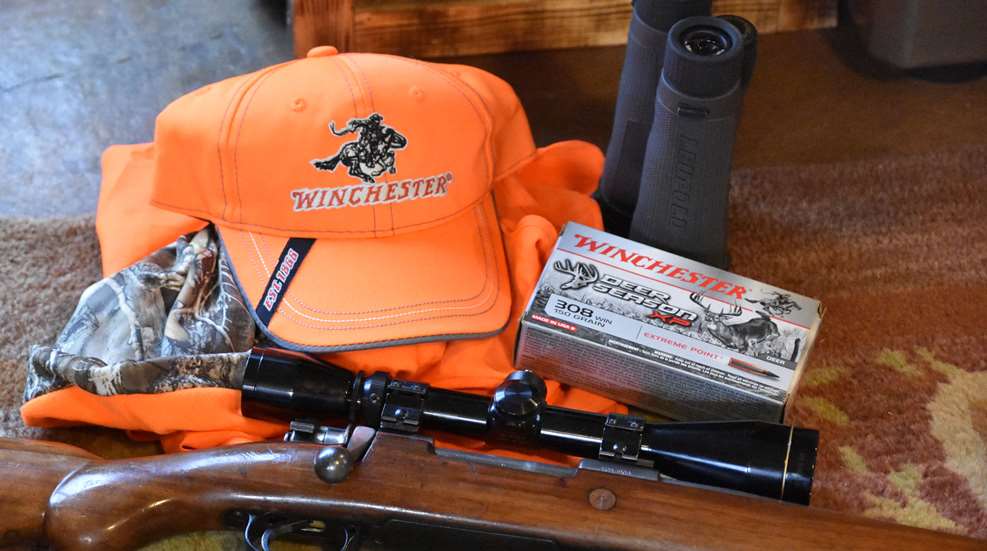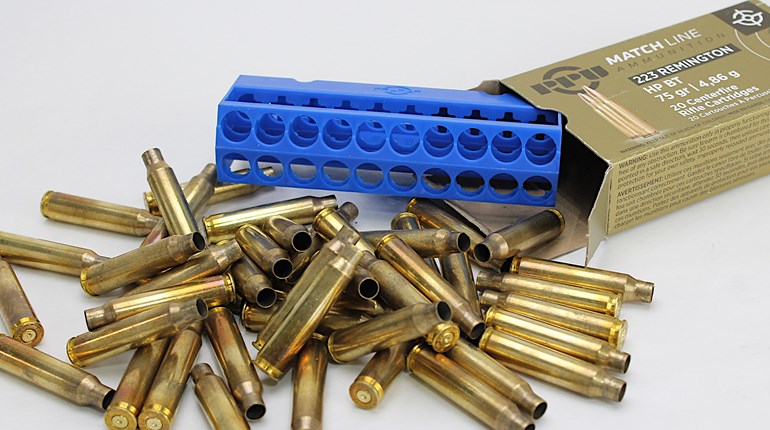
With the millions of hunters that take to the fields and forests of America during the fall hunting season, odds are that you know someone who is a hunter or hunt yourself. If you are a hunter, you should check out the National Shooting Sports Foundation’s +One movement and take someone new hunting! I’m going to share some tips to help make hunting season go a little smoother regardless if you’re going solo, with your family or bringing a newbie.

Do the Paperwork Early!
You need a license to hunt, and you will need your Hunter Safety certification to buy a license. Depending on your state, there may be items on your old permit, like your DNR number, the county or zone that you hunt in, and your hunter safety info. This information from an old license is often helpful when purchasing a new one, so keeping track of these items from year to year is a must.
If you hunt year-round, you should look into what some states call a sportsman’s license. This usually rolls several fees into one. Often it affords more hunting opportunities for a better price. Some states also have discounted license fees for first-time hunters, or hunters who have not purchased a license for several years.
Regardless of the type of hunt you are going on, the paperwork has to happen, so you may as well do it early to iron out any issues well ahead of opening day. Most state Department of Natural Resources (DNR) websites have online permitting, making paperwork pretty simple!
Tips to remember:
- Save your license from the prior year for the info on it.
- Make a photocopy of your hunter safety certificate, and store it someplace at home so that you will always have it.
- Put your hunting license into whatever device you are required to carry it in (back tag holder, zip lock bag, pocket, etc.) the night before you hunt so that you do not forget it.
- Send yourself a text with a link to the hunting hours page from your state hunting regulations so that you know what time to start/stop shooting.
Check Your Gear 
Most people who hunt locally and semi-locally tend to do a day hunt, meaning they hunt close to home or near enough that they return each night. A day hunt is not usually remote and generally won’t put you far out from civilization. This means that it’s easy for those hunters to put off finding and organizing gear until the last minute. Set a timeline to prepare gear several weeks beforehand. This will allow you time to do things like buy bigger boots or a jacket if yours no longer fit. I especially advise families with young hunters to do this as kids might outgrow their gear each year.
Find a staging place in your house to set gear and start early. Some people will hang their hunting clothes outdoors to remove any scent that could spook the game.
Basic Gear List:
- Base layer and warm socks
- Warm pants and jacket—these don’t have to be top-of-the-line hunting gear. A simple pair of fleece-lined pants over a base layer will keep you warm for a local day-hunt. Even a pair of ski pants that are not noisy will suffice.
- Waterproof outer layer: rain gear or waterproof poncho
- Hat and neck gaiter—some states require safety orange hats for specific seasons. If it’s going to be very cold, it’s a good idea to have a neck gaiter or balaclava that fits under your orange hunting hat.
- Orange vest, jacket or otherwise legal high-visibility gear as required by your state
- Gloves, hand warmers, mittens to go over gloves while you are standing still
- Boots suitable for the weather and terrain you will be hunting in
- Snacks and water: It gets hot hiking into the woods carrying a firearm in heavy clothes, so make sure you hydrate.
- Gear to keep you warm in the stand: blanket, seat cushion, heater, etc.
- Safety harness or other safety gear if you are in an elevated stand.
- Rifle or shotgun with zeroed optic and a cover for the optic in case of rain or snow
- Case for your rifle in the vehicle
- Sling for your rifle or shotgun, if you have to walk a long distance to your stand
- Ammunition that the gun has been zeroed with
- Any gear for calling game that you plan to use
- A phone or radio to stay in touch with others, especially if you hunt alone
- Gloves, knife and other tools for field-dressing game
- A pack frame, bag or bin to put meat inside of in your vehicle
Go Over Basic Skills before You Hunt
If you are an experienced hunter, you should still take a refresher course prior to each season. Whether you’re an experienced hunter or a brand-new hunter, going over your firearm to make sure it’s in good working order and properly zeroed with your hunting ammo is a must!
If you’re bringing young or new hunters, make sure that:
- Their firearm fits them
- They have a firearm that they are familiar with. They should know how to operate the safety and understand the basic functioning of the gun.
- Their firearm has been zeroed-in and they understand where to aim

Taking them to the zero range with the rifle is a great opportunity to go over the rules of firearms safety as well as help them get comfortable with where the gun hits and where to aim. Looking at online resources for the “where to aim” information can be very helpful to people who might not have had enough information on this topic in a hunter safety class.
Talk about getting into and out of the blind or stand. If it’s possible, get out to the stand and make sure that your new hunting buddy understands where they will be shooting from, and how to get into and out of the stand safely. This is also an opportunity to scout the area that you plan to hunt, find clear lanes to shoot down when you are in the stand, and take a chair or seat out to your stand so that you do not have to haul everything in on opening day.

Prepare for Success
Don’t forget to plan for how you will register your game, whether that is online or knowing where your nearest game registration station is. Understanding what is required by your state laws ahead of time will make back-planning to when you need to be out of the field easier. Even watching videos on field-dressing game can help you so that you have the process fresh in your mind.
When you plan ahead and start prepping your gear and hunting location early, the time spent actually hunting will be much more enjoyable! For families who hunt, the time spent preparing will allow you to focus on being with each other, and help instill responsible habits in young hunters.















































